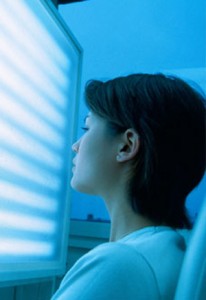
More evidence that low-calorie sweeteners are bad for your health
Studies show that artificial sweeteners can raise the risk of hypertension, metabolic syndrome, type 2 diabetes and heart disease, including stroke.

Natural Health News — A new study suggests that bright light therapy could improve sleep, cognition, emotion and brain function following mild traumatic brain injury.
When mild traumatic brain injuries (also called concussions) don’t heal well, sufferers can be diagnosed with a condition called post-concussive disorder. Symptoms include headaches especially with increased activity, dizziness, light and noise sensitivity, impaired memory and concentration and mood disorders.
Sufferers also report poor sleep and having less energy to participate in daily activities. The result is that just getting through the day can be much more taxing than usual.
The small preliminary study group comprised 18 individuals with a documented history of at least one concussion and sleep disturbance that either emerged or was aggravated with the most recent injury.
All participants underwent magnetic resonance imaging (MRI) and comprehensive psychiatric and neuropsychological assessments before and after the intervention.
The participants were randomised into groups that received treatment with blue light or a ‘placebo’ amber light.
Just 30 minutes a day
Results show that six weeks of morning bright light therapy (30 minutes each day) resulted in a marked decrease in subjective daytime sleepiness. The light used was in the blue wavelength This improvement was further associated with improvements in the propensity to fall asleep and nighttime sleep quality. Bright light therapy also improved depressive symptoms as well as attention, speed of information processing, memory and executive functioning (i.e. managing time and attention, the ability to plan and organise etc).
“Our preliminary data suggests that morning bright light therapy might be helpful to reduce subjective daytime sleepiness and to improve nighttime sleep,” said investigator Mareen Weber, PhD, instructor in psychiatry at McLean Hospital/Harvard Medical School in Belmont, Mass. “Importantly, the research also shows changes in brain activation during a demanding cognitive task, suggesting that bright light treatment might yield changes in brain functioning.”
The research abstract was published recently in an online supplement of the journal SLEEP ahead of this weeks SLEEP 2013, the 27th annual meeting of the Associated Professional Sleep Societies LLC.
Better sleep is vital to healing
According to the authors, it has been estimated that at least 50%t of individuals with
concussion experience some kind of sleep disturbance at some point following their injury, and sleep has been demonstrated to be essential for brain plasticity and may be important for recovery.
“Improving sleep following mild traumatic brain injury could prove critical to maximizing recovery from the injury,” said Weber. “Furthermore, bright light therapy is easy and minimally invasive, requiring no medication, and has no known serious side effects.”
Blue light therapy is also known as bright light therapy and has proved helpful in treating mood disorders such as Seasonal Affective Disorder (SAD) and even major depression. It has been shown that blue light also worked better than red light in treating SAD symptoms.
Other studies have found that blue light can help strengthen and stimulate connections between areas of the brain that process emotion and language.

Please subscribe me to your newsletter mailing list. I have read the
privacy statement